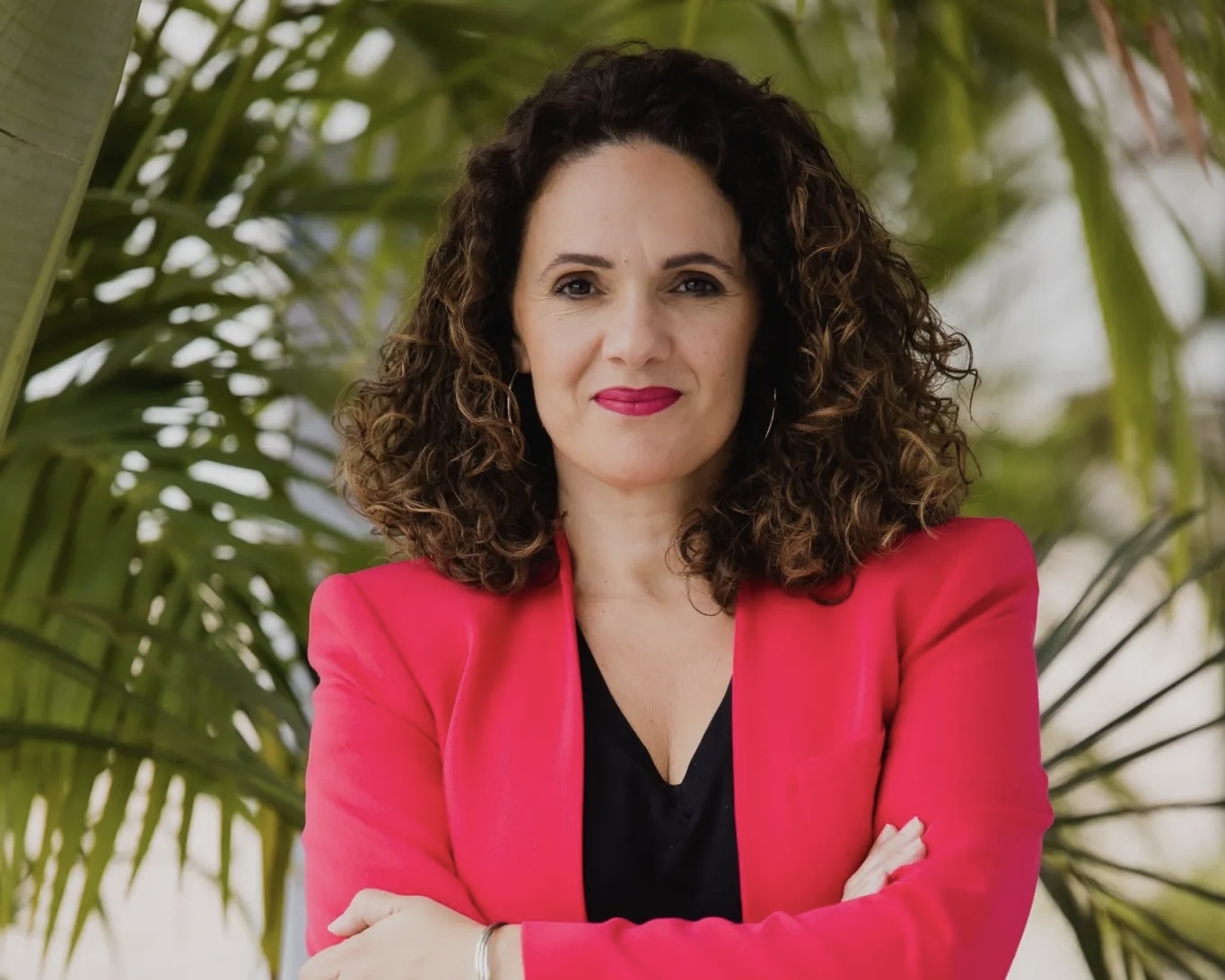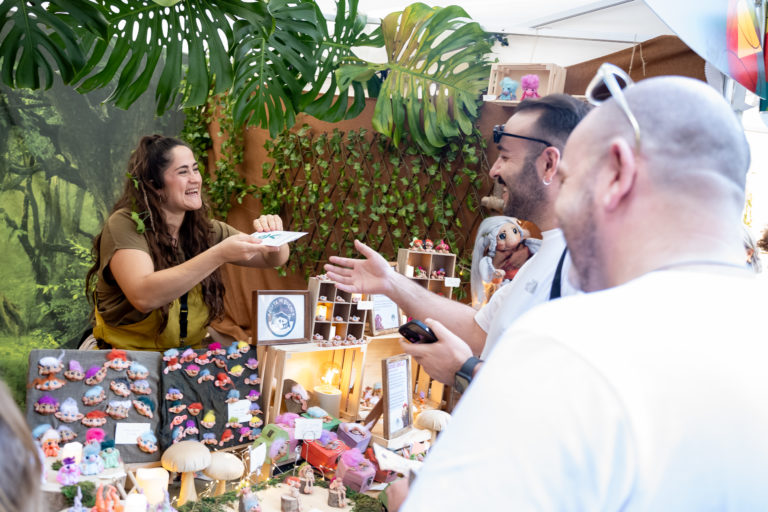The Association of Spanish Conference Centres (APCE) interviews Natalia Santana, general manager of Infecar, about the current situation and the short and medium-term future of the Canary Islands Trade Fair Institution.
First of all, how have your first few weeks in your new position as head of Infecar been?
The truth is that there hasn’t been much change in the day-to-day work, since I had already been acting as accidental general manager for a year and a half. For me it is a great responsibility and a great honour to be in charge of Infecar and its entire team at a time of such profound transformation as the one we will be going through in the immediate future.
What challenges and strategic objectives have you set for yourself?
We are currently immersed in the comprehensive transformation of Infecar, which will allow us to reorganise the physical space in order to respond to the challenges and trends facing the trade fair and event activity of the future.
On the other hand, this spatial renovation will also respond to another of our objectives, which is to market our exhibition centre and Conference Centre to new sectors, activities and events. In this way, we will be able to accommodate all kinds of proposals in our facilities, making it an innovative and multidisciplinary space adapted to what our clients are looking for.
Likewise, at Infecar we want to be aware of the current situation, so we are carrying out actions that contribute to being, more and more, a space for sustainable, adapted and versatile events.
With all this on the horizon, our main challenge is for Infecar to contribute to improving the competitiveness of Gran Canaria as a business destination and its entire business fabric.
It seems that we are leaving behind everything that has brought us to live with the pandemic. After more than two and a half years, taking stock… How do you think the conference centres are adapting to this new situation? And in your facilities in particular, what would you highlight from everything you have experienced and learned during this time?
If we review the evolution of Infecar from March 2020 until now, we can affirm that we have not stopped learning throughout this process. The arrival of the pandemic led us to go from zero, in terms of activity, to adapting to a digital space; to later move to a hybrid format, until we returned to being fully face-to-face. I think that this adaptation to the needs that arose at any given moment was the greatest learning experience we took away with us. We had to learn to adapt our activity to the scenario we had at any given time, to change dates, to convert spaces and to reach our visitors through a screen in order to attract them back to Infecar.
As for any sector, the hardest months of the pandemic were used to reflect and adapt to the new reality. Has this time served to mark the strategic line of action and digital transformation of your Palace?
Of course it did. The pandemic brought to the table the urgency of being present in a digital world immediately. There was no other option and we knew how to reinvent our products, so that customers would find in Infecar an attractive offer to attend virtually. Today, as we have recovered 100% of our presence, we maintain this digital window.
Is Infecar committed to hybrid events, or are you working to promote a return to face-to-face attendance as an essential value for the events sector?
We are committed to maintaining hybrid events, because we understand that there is a demand for content in digital format that is important to cover. However, this does not prevent us from working at the same time to promote presence, providing a valuable experience when visiting our venue.
What is Infecar’s current commitment to sustainability?
Infecar is a national pioneer in sustainability, having signed an agreement last year with Breeam Spain to work on the sustainable building certification of buildings in use and new constructions. For the institution and its entire team, it is a challenge for the new Infecar trade fair pavilion to become the first trade fair pavilion in Spain with excellent sustainability certification and, furthermore, to certify not only the rest of the buildings already in use, but also all the new urban development resulting from the transformation of the site.
In this regard, it is important to emphasise that the work we are carrying out with Breeam Spain involves a comprehensive change in our management model, taking into consideration the evaluation of the environmental impact of our activity; light and noise pollution; the development of a water strategy; the evaluation of the economic impact on the environment; the preparation of a mobility and transport plan and the development of an energy strategy, among others.
How is 2022 developing and what are the prospects for the end of the year?
Since the beginning of the year, activity has been incessant. In fact, there has been considerable growth with respect to 2019, of more than 30% in the holding of events. After these difficult years for the sector, we have been able to successfully hold numerous activities and events of different kinds.
With these figures and the day-to-day dynamics, the overall feeling is very good, and we are certain that we will close 2022 with very good figures.
Are there any events, adaptations or projects that you think should be highlighted at your facilities that should be known by the general public?
At Infecar this year we have hosted two major international events, DeepLearn Summer and the FIWARE Global Summit. Both are considered, within the Artificial Intelligence and Big Data sectors, to be among the most important events in the world. Each edition is held in a different capital or city, having chosen our city and our facilities for this 2022 edition, with the socio-economic impact that comes with hosting specialised audiences from all over the world.
Likewise, events such as the International Cheese Forum put Infecar and the city of Las Palmas de Gran Canaria on the world map, encouraging more and more requests for international events to be held here.
The number of people attending events is multiplying, the number of people travelling from outside the islands to attend them is increasing and the variety of types of events is growing. At last, the fear or insecurity of attending mass events has disappeared and we are witnessing a new golden age in the events sector.
What final message would you send to those who wonder about the security, adaptation and professionalism provided by the facilities of the APCE member Palaces?
The reality is that our facilities and equipment adapt to any type of activity, situation or request. Our vast experience, the recent refurbishment of spaces, the clear improvement of technological services (derived from the celebration of hybrid events) or the expansion of qualified staff, means that the APCE member Palaces respond to the total confidence that is placed in their facilities and equipment.



